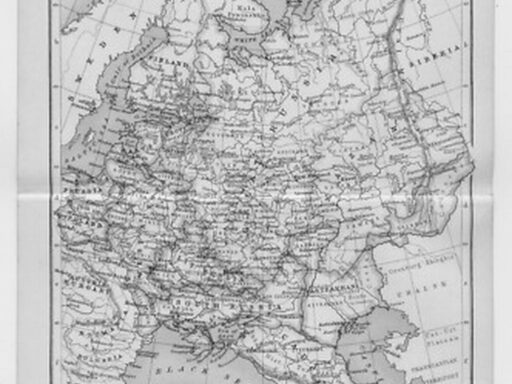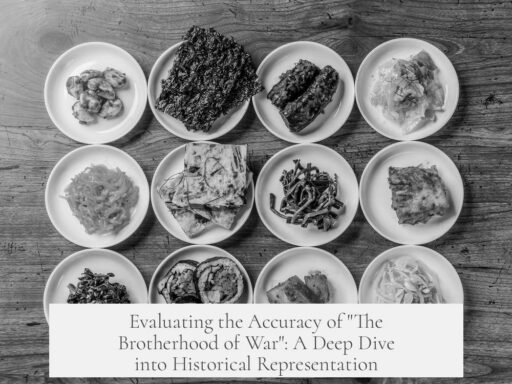Modern Scythian Neopaganism, known as Assianism, is not in direct continuity with the ancient Scythian religion. It is primarily a recent revival movement. This revival reconstructs past beliefs based on archaeological findings and limited historical sources rather than uninterrupted traditions. Successive conquests, migrations, and religious changes disrupted and replaced the original Scythian spiritual practices long ago.
Ancient Scythians practiced their own ritual system. However, there is no documented lineage connecting these practices continuously to modern times. The lack of surviving texts or uninterrupted rituals makes authentic continuity impossible to verify. Instead, Assianism reflects a modern reinterpretation inspired by historical and cultural elements attributed to Scythians.
Scholars recognize that Assianism often functions more as an ethnic or nationalist expression than a pure religious survival. Many contemporary communities use it to reinforce cultural identity rather than to preserve an ancient faith unchanged.
Regarding Christianization, the idea that Scythian regions resisted conversion to Christianity for a thousand years does not have solid historical support. Archaeological records and historical accounts show Christian influence spreading throughout these territories during the early and high Middle Ages. Pagan practices diminished significantly as Christianity established itself.
There is no credible evidence of continuous pagan resistance lasting a millennium. The narrative of prolonged resistance is often linked to modern nationalist or identity movements. It acts as a myth that romanticizes the past for present-day cultural affirmations.
These claims, while impactful in certain national or spiritual contexts, do not stand up to critical historical scrutiny. They represent contemporary constructions rather than reflections of uninterrupted ancient traditions.
- Assianism is a modern reconstruction lacking direct continuity with ancient Scythian religion.
- No evidence supports a millennium-long pagan resistance to Christianity in Scythian lands.
- Claims of prolonged resistance often serve nationalist identity-building.
- Historical records show Christianization occurred during early and high Middle Ages.
- Modern Assianism reflects reinterpretation, not a preserved ancient faith.
Is Modern Scythian Neopaganism (Assianism) Actually in Continuity with Ancient Scythian Religion? Did the Region Really Resist Christianization for 1,000 Years, or Is This Just Modern Nationalism?

Here’s the short answer right up front: Modern Scythian Neopaganism, also known as Assianism, isn’t really in direct continuity with the ancient Scythian religion. And nope, the region did not resist Christianization for a whole millennium—that’s mostly a modern twist fueled by nationalism. Let’s unpack these claims because the story is way more fascinating than just a yes or no.
Ever stumbled onto a spiritual movement claiming immediate ties to an ancient tribe’s religion? Easy to get caught up in the romance of direct lineage. But reality usually slides in with a few archaeological facts and historical records that shake things up.
Modern Assianism: Revival, Reconstruction, or Rebranding?

First, modern Assianism flags its roots in the ancient beliefs of the Scythians, those nomadic horse-riding tribes who roamed the Eurasian steppes long ago. But here’s the kicker: there’s no continuous trail of written texts, oral traditions, or sacred rituals linking ancient Scythian religion directly to today’s Assianism.
Why? The ancient Scythians didn’t leave behind extensive writings of their spiritual practices. Most of what scholars know comes from archaeological artifacts, burial sites, and descriptions from classical authors like Herodotus. That’s like trying to reconstruct a whole play from a few scattered lines and costume pieces.
Modern Assianism steps into this gap, piecing together a spiritual framework. But—and here’s the thing—it’s more of a modern reconstruction than an unbroken tradition. Think of it as an inspired revival, with contemporary influences, infused with nationalism and current spiritual vibes.
Scholars agree: no solid proof backs a direct, uninterrupted religious lineage from ancient Scythian religion to Assianism today. Instead, the movement often reshapes ancient symbols and myths, blending them with modern identity hopes and aspirations.
The Myth of a 1,000-Year Resistance to Christianization

On to the second big claim—that the Scythian region resisted Christianization for a thousand years. Sounds epic, right? Like a spiritual fortress holding out through centuries. Sadly, history takes a less dramatic tone.
Regions once home to the Scythians did indeed encounter Christianization, often between the early and high Middle Ages. This shift wasn’t a sudden takeover or a brutal conquest but a gradual process involving political power shifts, missionary efforts, and cultural mixing.
There’s no clear, documented evidence that these territories maintained pagan religious practices uncontested for a whole millennium. Stories of such prolonged resistance tend to be modern inventions, crafted within nationalist circles, aiming to create a unique ethnic or spiritual identity by staging a long, heroic defiance.
So, in reality, Christianity found its way into the region, weaving into local culture and evolving the society over time. The “resistance” narrative serves more as a cultural myth, giving modern communities a powerful, if somewhat romanticized, origin story.
Nationalism’s Role: When Spirituality Meets Identity Politics

Why the push for connections to an ancient religion? Mostly because ethnic and spiritual identities crave depth and distinctiveness. Claiming a direct link to Scythian ancestors connects communities to a glorious, mystical past. This link becomes a source of pride and a blueprint for cultural revival.
Modern Assianism often revolves around nationalist ideologies. It reinterprets scarce archaeological findings and classical narratives to fuel contemporary identity formation rather than strictly reflecting historical facts.
This isn’t unique to the Scythians. Many modern neopagan movements around the world reconstruct ancient religions partly based on national pride or identity-building. It’s an understandable human impulse but one that requires careful distinction from verified history.
What’s the Benefit of Knowing the Truth?

Understanding that modern Assianism is a reconstruction rather than an untouched tradition doesn’t lessen its spiritual value. Instead, it helps practitioners and observers appreciate the movement as a meaningful reimagining, rich in symbolism and cultural connection, not as a literal continuation.
Similarly, recognizing that the “1,000-year resistance” is more myth than fact highlights how history and identity intersect. It invites us to explore history critically, respecting both the past’s complexity and modern cultural expressions.
Quick Takeaways and Recommendations for Curious Minds

- Assianism today is a modern spiritual revival, not a direct, continuous survival of ancient Scythian religion. Think of it as inspired by, rather than descended from, the past.
- The region historically known as Scythia did not resist Christianization for a millennium. The Christian influence grew steadily, largely unchallenged over the centuries.
- Nationalist narratives often color interpretations of history. Be wary of stories that seem too neat or heroic—history rarely is.
- If you’re exploring Assianism or other neopagan paths, appreciate their contemporary cultural significance while grounding expectations in historical research.
- For history buffs and spiritual seekers alike, question where narratives come from, and embrace the complexity.
Final Thoughts: Can Ancient Spirituality Spark New Life Today?
Modern Assianism stands as a fascinating example of how ancient motifs and cultural memories can ignite new spiritual flames. Does it hold onto ancient Scythian religion like a direct family heirloom? No. But does it creatively reimagine heritage to inspire identity and faith? Absolutely.
So, next time you hear someone claim that modern Assianism carries on an uninterrupted ancient tradition or that a whole region defied Christianization for a millennium, you’ll know to ask: “What’s the historical evidence for that?” And maybe, “What’s the story really trying to tell us about who we are today?”
History can be a messy, fragmented puzzle, but understanding its true shape often unlocks deeper respect for both past and present.
Is modern Assianism a direct continuation of ancient Scythian religion?
No, modern Assianism is a recent revival that reconstructs ancient practices. There is no continuous written or ritual tradition linking it directly to the ancient Scythians. It serves more as a spiritual revival than a historical continuation.
Did the Scythian region resist Christianization for 1,000 years?
Historical and archaeological evidence shows the region was Christianized during the early to high Middle Ages. The idea of a millennium-long resistance is unsupported and stems mainly from nationalist myths.
Why do some groups claim a continuous Scythian pagan tradition?
This claim often reflects modern ethnic or nationalist agendas. It helps build a unique identity but lacks historical backing. The narrative romanticizes the past rather than records factual continuity.
What role does nationalism play in the perception of Assianism and Christianization?
Nationalist ideologies frequently promote the idea of uninterrupted pagan traditions and long resistance to Christianity. These stories strengthen ethnic identities, though they are not supported by historical data.




